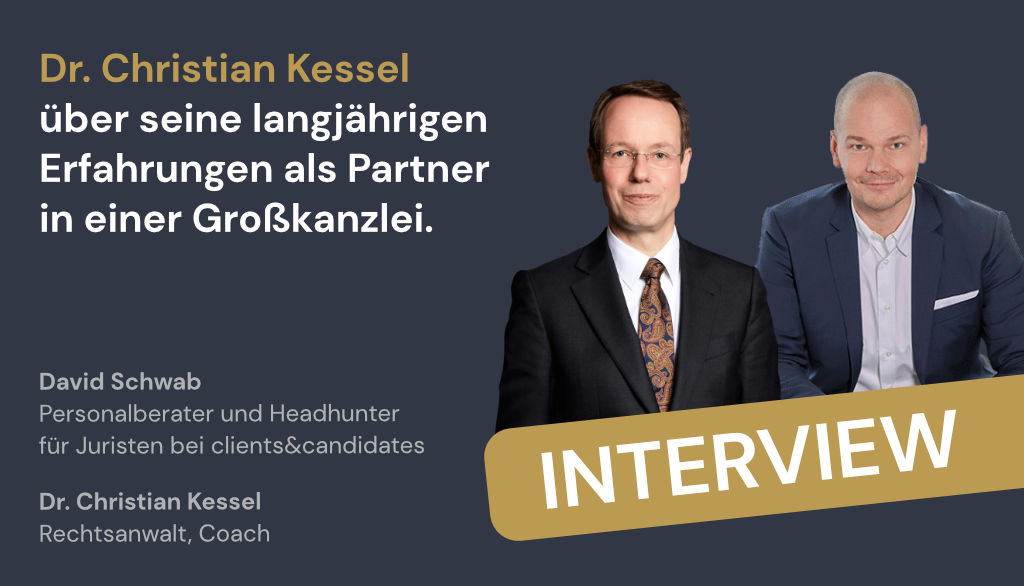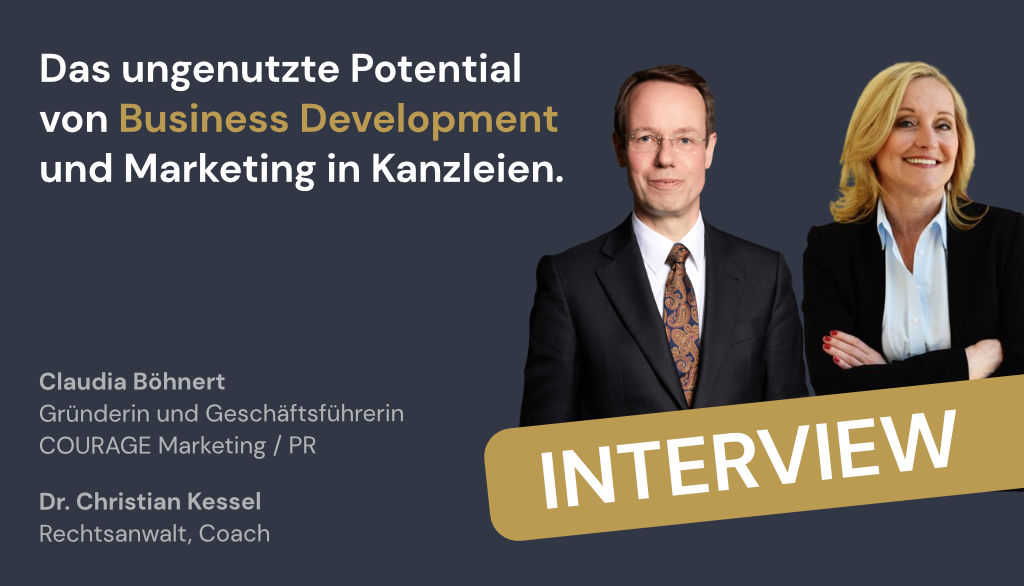On the success of business development activities.
The most unknown and least discussed reasons why you are not (and are even unlikely to become) the successful business developer you aspire to be
There are lots of factors that may have an effect on how good we are at business development, and whether we have the potential to become a rainmaker (and actually realise the potential and really become one):
- The internal mechanisms of our heart, mind, and soul,
- The effects of hurts and wounds during the early stages of life,
- More broadly, our life experiences and their effect on our thinking,
- Our values, the convictions we hold, our worldview, and
- Our perceptions of ourselves and the people around us (family, colleagues, customers and clients, bosses and leaders, or people in our charge or under our own leadership) and the related mindset
In short, everything that goes on inside us (our inner being) may be relevant and play a role in whether we will be successful business developers or not.
Sadly, few professionals are aware of these influences on their careers.
If any of these factors prevent you from being successful in your business development efforts, and you are not aware of them as the possible reasons for remaining behind your own ambition, or your firm’s expectations of your success, you will carry on indefinitely without a breakthrough and any significant success as you are unable to address them and deal with them for lack of their knowledge.
Therefore, I want to provide some basic information in the following paragraphs in order to equip you to recognise possible challenges in your internal framework and to be encouraged to address them, deal with them and overcome them.
For all of these internal factors can be remedied and do not need to be permanent challenges, obstacles, or hindrances to your success as a business developer and even rainmaker.
Summary of key issues
The key issues under which all of these factors (or our inner being, i.e. everything that goes on inside us) fall and can be summarised are
- negative mindsets,
- limiting belief systems, and
- identity issues.
Thus, the above factors that reflect what is going on inside us can be broken down in these subcategories or levels of our inner being.
Good business developers are successful entrepreneurs
For our purposes, identity issues may particularly refer to your professional persona and/or the need to be a salesperson in addition to being a brilliant lawyer, tax advisor, accountant, business consultant or, in fact, any other professional. Identity relates to the issue whether service providers are and should be successful entrepreneurs. Even in big law firms, accountancy firms or business consultancies each actual or aspiring partner is expected and required to grow his or her business and is therefore one of many entrepreneurs in the partnership. Success as a partner in any of these businesses is to a large degree subject to and rated by winning and growing business continuously.
So let’s look at some typical examples, and explain more abstractly what these terms mindset, belief system and identity mean, how they differ from each other and how they originate.
And last, but not least, let’s look at how to change identity, form new mindsets and overcome limiting belief systems.
1. Typical examples for illustration purposes
Here are some typical negative mindsets and limiting beliefs/belief systems:
- I am still too young/too inexperienced to be successful in business development (please see my foundational articles: Business Development Strategy, Implementing Business Development, Business Development Challenges).
- I am too new in the firm to be successful in acquiring new business or be effective in cross-selling
- I am better positioned as an execution lawyer/back office executive
- I have had several bad experiences regarding business development
- I’ve lost many pitches
- The likelihood of success in acquiring a new client was limited from the beginning
- I’m not good at business development anyway
- I am shy/reticent
- I cannot speak well in front of others
- I do not come across very well
- I am not really worth the money that my firm charges for me
- Our competitors are too good, I will not win this pitch/client
- I’m more of the back office kind of guy
- I am not a good salesperson
- I have lost the last 4 pitches, so I will lose this new one as well.
Typical examples of the lack of identity as a professional and/or as a salesperson are:
- I do not really perceive myself as a lawyer/advocate/ trusted adviser, I really only want to be a notary public
- I do not understand why I need to sell myself; I am such a brilliant lawyer, clients should flock to me
- I am a great lawyer/accountant/tax adviser/business consultant, but selling is not part of my job description.
2. Limiting Belief Systems/ Negative Mindsets
The mind and the mindset
The mind ( as a subcategory of the inner being) comprises what is going on in my brain (or head) all the time – my thinking, feeling and decision-making at any given moment; it is basically the conscious mind. It consists of rational thought (mind), feeling (emotions) and the ability to make decisions (will).
A mindset is a person’s established mental attitude, disposition, way of thinking, inclination, or frame of mind towards particular circumstances, events or tasks.
The mindset influences how we perceive the people around us, the environments or spheres of influence in which we live and work and often, most importantly, ourselves.
Thus, a person’s mindset reflects that person’s self-perceptions or the beliefs he or she holds about him-or herself as well as about their key qualities and abilities to succeed in life.Mindsets, therefore, play a primary part in determining behaviour, outlook and approaches to challenges, threats, change, problems, goals, tasks, and decisions. Mindsets also determine how to deal with or act on each of them in any situation.
Ultimately, the mindset may even determine life’s outcomes for people.
Beliefs/Belief Systems
Beliefs are principles according to which I think how life, business, my environment and the world at large are working. They can tell me what to expect in certain circumstances. Beliefs represent what I deem true – irrespective of whether any particular belief is objectively true or untrue. Thus, lies may be my beliefs if I trust that something is in a certain way even though it objectively is not and therefore untrue.
Beliefs (or belief systems) derive from the experiences I have actually made; they are the result of my interpretation of these experiences or my decisions about what these experiences really mean. A belief is therefore formed from the interpretation of an experience I have had: My interpretation of what has happened in my life over time (e.g. my parents only expressed love and appreciation for me when I brought home from school excellent grades) and my decision what that experience means (as well as the choice to live within that meaning) make up my belief system (I am only loved when I am successful/perform well).
From mindsets to belief systems
A mindset may develop into a belief system as a permanent outlook on certain circumstances or events in my life. To give an example:
I have just lost 4 pitches in a row. A new pitching opportunity comes in and my first thought is “Oh no, I will (likely) lose this pitch as well”. If this thought or any feeling of unwariness about this new pitch occurs initially they are probably only a negative mindset. But if they linger for a longer time, solidify or are even reinforced by further losses of pitches they may develop into a belief system: “I am not good at pitches” or “I never win pitches” or “I don’t need to participate in a pitch anyway, I will never win it”.
Negative Mindsets/ Limiting Belief Systems Prevent Business Success
Mindsets or beliefs that do not produce the results you want are called limiting beliefs, counter mindsets, negative mindsets, and wrong belief systems. Check out again the first list of examples above under 1.
If in spite of reasonable efforts to be a successful entrepreneur and to grow your book of business, the results do not match your (and/ or your firm’s) expectations, ambitions or activities, it is time to consider your mindset or your underlying belief systems. Therefore:
Let the insufficient or unsatisfactory results of your efforts draw you into a journey of personal and business growth through a process of renewing and transforming your mindsets and beliefs – changing and getting rid of everything that holds you back in your inner being.
Then your business plan will work out, your business development efforts will pay off adequately, you will achieve success (at all or in greater measure) in your profession and you will reflect personal growth.
In other words: These limiting beliefs or negative mindsets keep people back when it comes to their potential, it prevents them from realising their full potential.
Nothing new
The influence mindsets or belief systems have on my way of thinking, feeling and decision making are nothing new in history. Some of the world’s oldest Wisdom literature relates the insights of perhaps the wisest man on earth, Solomon, who said: “As a man thinks within himself, so he is“ – and this applies to women as well, of course (cf. Proverbs 23/7, TPT).
Further factors for beliefs- but less relevant for the business world
Just for the sake of completeness beliefs are often also influenced by religious, philosophical, ideological, cultural and social factors as well as education; but these play by and large lesser roles as regards realising your full business development potential
3. Changing Negative Mindsets or Limiting Beliefs/ Belief Systems
Changing negative mindsets and/or limiting belief systems is part of one’s personal development, constitutes or reflects a growth mindset and causes your business skills to bear fruit and create success. It makes you a successful entrepreneur (as you should be and consider yourself as even in a big firm) which is an essential part of your career.
3.1 Changing Mindsets
Often discipline may help to change thoughts or decision-making processes – when I focus on a positive way of thinking regarding the way ahead; or when I make more consciously good, well-reflected decisions after I have disciplined myself to carefully think it all through.
Similarly, our mindsets can be influenced by personal reflection and introspection. By examining our thoughts, beliefs, and biases, we can identify areas where we may need to reevaluate or shift our mindset. As we challenge negative thoughts or feelings and focus on positive alternatives, our mindset changes.
As far as a mindset is experience-based, it can only be changed by experiencing the opposite.
3.2 Changing Beliefs/Belief Systems
As discussed above, beliefs derive from the interpretation of – often repeated or very intense – experiences: As we decide what these experiences mean and choose to live within their meaning or interpretation, the belief is formed.
So here are some key points for changing our beliefs/belief systems:
(i) Opposite Experience
Often it takes an opposite experience and its interpretation to develop a new belief. By that new – positive – experience the memories of the original/old – negative – experience are cancelled or changed. As we choose and adopt a new interpretation ( of the kind of circumstances or events that caused the original limiting belief) we can live out of a new, positive, not limiting belief/ belief system.
We cannot intellectually talk ourselves out of the belief, we can only have a positive experience that changes our belief and replaces the lie of the initial/old experience by the truth of the new experience. Thus, an experience with truth is required for change.
When we encounter different experiences we can choose a new interpretation of what they mean and then are able to live out of that new belief. The new positive experiences and the truth emanating from them are powerful lessons in our personal development.
(ii) Rational evaluation in rare cases
In some cases, it may even be sufficient to rationally evaluate a belief as to whether it still makes sense to hold on to this belief. The experience that caused a belief was a good reason to believe it. But does it still make sense?
(iii) Renouncing and replacing
Another strong tool is renouncing the old belief and replacing it with a new one – the truth about yourself, your capabilities and ultimately your potential.
Renouncing is the express verbalisation of the conscious decision and determination to release the past and relinquish the old belief. It is revoking the former decision derived from the interpretation of an experience to hold a certain belief from now on.
Replacement means deliberately substituting a new belief for the old one.
(iv) Declarations
Declarations serve to affirm or reinforce a truth in the mind and to emotionally re-experience it each time I verbalise the new belief (preferably loudly to myself). Each time I declare this new belief, it flows further down into my inner being as the truth and I become increasingly convinced of it in my innermost being.
Growth Mindset v. Fixed Mindset and Poverty Mindset
Although these are referred to as mindsets, they are actually belief systems and therefore leaving or changing a fixed mindset or even a poverty mindset and adopting a growth mindset is not so easy. But a growth mindset is essential for successful business development and becoming one of the firm’s most successful entrepreneurs.
So what are they?
The Growth Mindset
Anyone with such a mindset believes to be able to realise his or her full potential :
On the one hand, people with a business mindset geared toward growth firmly believe that their skills, knowledge, abilities or business experience will allow them to create new ideas to continue building their business, to be able to solve problems on moving forward and to see and pursue the big picture. Their growth-based business mindset comprises the vision of being successful entrepreneurs and implementing the chosen business strategy, fulfilling the business plan and advancing in any skills they are lacking.
On the other hand, anyone with such a mindset is not deterred by obstacles, difficulties or challenges but rather rises up to the occasion and creates solutions. Such people leave their comfort zone as they believe that they are not limited by their natural gifts and abilities but that self-improvement through learning, developing new skills and taking risks is part of their life as a business owner and entrepreneur.
A growth mindset thus empowers to pursue new business, to develop a business plan and to adjust it as need be, stay motivated to set up weekly or monthly business goals and fulfil them, to constantly plan the steps ahead, to influence people in your team or firm positively by growth inspired leadership skills and to carry on even when making mistakes.
The Fixed Mindset
In contrast, such a mindset causes behaviour that is adverse to taking risks, is often fearful of failure, is prone to passivity and suffers from a lack of openness to innovations and forward thinking. People with this kind of mindset believe that their natural abilities, skills and intelligence are limited and cannot be significantly be grown, developed or improved and are not sufficient for their own advancement. They consider their own potential limited.
The Poverty Mindset
A poverty mindset causes people not to work on pursuing their dreams, ambitions, visions or goals as they cannot imagine that their efforts may be successful. They often suffer from low self-esteem, a sense of helplessness and may even be without hope for the future.
In summary, a healthy business mindset should always be geared toward growth. If that is not the case with you, become aware of it and acknowledge it, do not concentrate or even embrace your (imagined air perhaps actual) lack but move forward on your business goals day to day. And otherwise, apply the tools referred to above for changing belief systems.
If this is too challenging to begin or carry through on your own, seek help!
In conclusion :
As we transform the way we think of ourselves, as we renew our minds, as we change our mindsets and belief systems and exchange the lies of wrong beliefs or limiting belief systems for the truth that we are capable of achieving success as business developers and successful entrepreneurs we lay the groundwork for realising our full potential as successful business developers and even rainmakers.
On the basis of a mindset with the right attitude for growth in all respects, we may begin to see an increase in ideas for our business strategy, win new or more customers or clients, make more money and improve our personal finance.
4. What is identity?
Identity relates to and defines
- who I really am,
- what I am supposed to do with my life (be a wonderful father for my children, a devoted husband or wife, a trusted advisor to my clients, and a fun person to work with, to name but a few)
- what actually makes me me,
- who life has made or changed me into
- who I have decided to be or to become.
My identity is primarily formed out of my
- Beliefs/belief systems which I have formed over time
- Memories
- Vows I have spoken out over me and my life („ I am not……“, „I never will be /do …..“),
- Wounds and hurts I have suffered as one-off events or over a continuous period of time,but also
- The core values of my life according to which I (try to) live,
- My genetic or bodily disposition and how I perceive myself accordingly,
- Culture, the societal environment in which I grew up and/or live, ethnic backgrounds, religion, socioeconomic status
- Personal choices and their pursuits like relationships, family, hobbies, leisure interests, sports and careers.
The first 4 factors above for forming one’s identity are a collection and synthesis of what is going in me (i.e. of my inner being). Identity is the storage site of my past and, translated into the present, makes me me, makes me as I actually am, sets out and reflects my current self (however imperfect and far from the true self that I could be and might even want to be).
Let’s discuss these 4 key features of identity briefly:
- Your beliefs play a major part. Following on from their discussion above it suffices to say here, that identity is also formed to a large degree by life‘s experiences and the memories I have of them ( for instance the way my parents treated me as a child, either good when the parents were loving and caring or bad when they were not).
- Memories comprise primarily the emotional memories: If I have miserably failed in a talk to an audience of 200 people and felt ill afterwards, every time I am exposed to the idea of giving a similar talk again, I may feel (or start feeling) ill or at least queasy. That is caused by my emotional memory that associates the initial old situation (the first talk) with any similar new one (the next /new talk) and causes the same feelings I had before.The emotional memory connects me to a past event, situation or circumstances and triggers the same sensations I have suffered from then as a result of the initial event, situation or circumstances.
- Vows are negative statements about myself as to who I am (or who I am not) or what I cannot do at all or well or will never do again in my life.In the above example of a bad performance in a talk to 200 people, a vow would be swearing or promising to yourself that you will never give any talks at conferences again.Once a vow is made there is a strange urge coming out of you (out of your identity) to conform to that vow or promise. Trying to overcome it is incredibly challenging unless one becomes aware of the vow and abrogates or reverses it ( which in turn may require the underlying wound or hurt to be healed)
- Wounds and hurts may result from what people say to me, what I suffer from, what I experience. Many beliefs, emotional memories and vows are based on wounds or hurts ( and often the shame that came along with them). They need healing of the past pain so that the future is released without any associations or memories of the past. The required kind of healing is often referred to as emotional or inner healing.
For each person, some of these factors may play a bigger role than others. But once we understand who we really are (or could become and – following a journey of transformation – actually become) and then act out of our newly developed, transformed and adopted or fully understood identity, all our work, efforts and challenges will become so much easier and both our life generally and our business journey become both good fun and a success.
So the question here is, whether selling myself, my services, my know-how and my experience (and/or those of my team or my firm) is actually part of who I really am. Am I a salesperson in addition to being an excellent lawyer, accountant, tax adviser, business consultant or other kinds of professional?
5. The effects of identity
Living in my identity makes things easy, natural, authentic and fun! If I live and act contrary to my identity, life becomes hard, challenging, a treadmill and I do not come across as the personable and authentic trusted advisor, deal facilitator or problem solver that my potential clients are really looking for.
Identity is about being before doing something. When we know who we are, doing becomes easy.
Conversely, when we try to do stuff without knowing who we are first, we may well hate it or we derive our entire self-esteem from our doing, more specifically from our performance.
6. Changing Identity
- As beliefs are a major part of our identity all the tools set out above for changing beliefs also apply to changing identity.
- Vows are negative identity statements defining us by who we are not or what we cannot do. Vows need to be renounced and we need to redefine expressly (preferably speaking it out loudly) in positive terms who we are and what we can do, manage or achieve.
- Wounds or hurts may require inner healing techniques. The reason for the wound and hurt is revisited but redeeming factors like love, wisdom and peace come into the situation and are experienced. These cause the inner wounds and hurts to heal.
- Likewise, painful emotional memories are healed by love, peace, forgiveness, and joy coming into the situation that caused the bad memories when they are revisited.
In summary:
Please be encouraged to walk the clear path of changing your mindset, belief systems or finding your identity and professional persona and develop the inner power to be the person, business developer and serial entrepreneur that you aspire to be. If you find that challenging, confusing, perhaps even overwhelming- yes, that may be the case. But none of that is worth avoiding this journey for the reward is huge.
And if you feel you may benefit from professional help or support on the journey – please seek it, it is readily and with much empathy available!
My own personal experience and the journeys many of my former team members and my coachees have taken are great testimonies that anyone can become a great and very successful salesperson and thus business developer and even rainmaker. Anyone can belong to the most successful entrepreneurs and partners in their firm as regards their own business.






